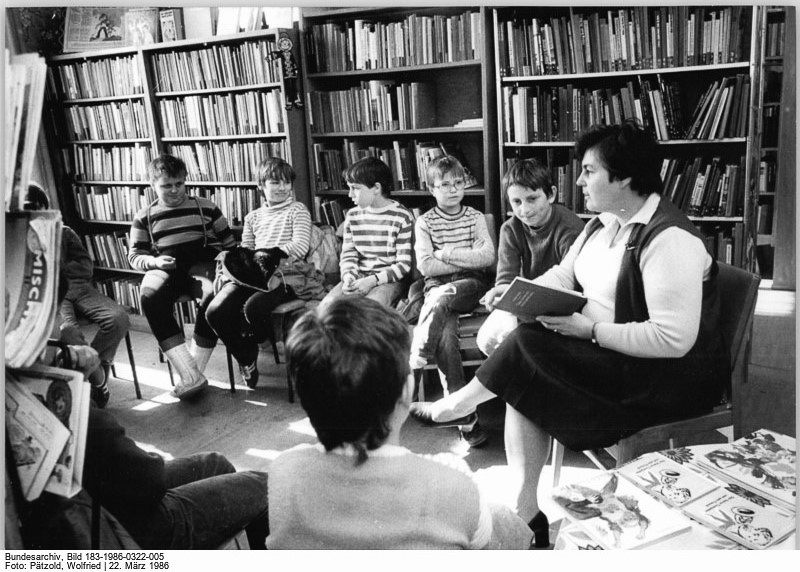The following was originally published in the Catholic Servant newspaper. Mr. Dale Ahlquist, the author, has graciously agreed to its being posted below. Loome Theological Booksellers encourages all to check out more of what Mr. Ahlquist has to say at the American Chesterton Society. And now, another reason not to watch television:
However, I have not yet achieved complete purity. Over the past few years, I have watched two or three television series (on DVD). So as not to give scandal, or free publicity, I won’t mention their names. Besides, they are problematic. While I have enjoyed the communal experience of hooting and hollering at the set with my wife and others while these ongoing tele-tales have unfolded, I have also noted that our reactions have been as perplexed as they have been pleasurable.
I understand as much as anyone the importance and artistic value of car chases and large explosions, but I cannot escape the notion that these elaborately presented thrills might not be serving a higher purpose. In the increasingly high-tech battles between the good guys and the bad guys, it is still pretty obvious that the bad guys are really bad, but it is less apparent that the good guys are really that good, except for the fact that they’re against the really bad guys. But it is hard to get excited when it is not clear what is being defended.
The confusion in these light entertainments of murder and mayhem are a sign of a slightly more profound problem: moral relativism. A few days before Christmas, Pope Benedict compared the times we live in to the fall of the Roman Empire. What do these two declining civilizations have in common? “The disintegration of the key principles of law and of the fundamental moral attitudes underpinning them.” The moral consensus, said the Holy Father, is collapsing. Without it, our society cannot function. Nor can it be defended.
G.K. Chesterton saw it coming over eighty years ago. Besides seeing the early signs of a New Dark Ages in the political, economic and social chaos of the modern world, he also pointed out how the pointlessness of modern art was a telling indicator of societal decay. We’re not talking about paint splatters on canvas, but about what was supposed to be taken as serious literature. Chesterton says that a detective story may not be considered intellectual, but at least there is some moral sense to it. There is a plan, there is a purpose, there is a problem, and there is a solution. It goes somewhere. But the so-called “serious novelist,” says Chesterton, “asks a question that he does not answer; often that he is really incompetent to answer.”
In the meantime, the serious literature folks make fun of the old sentimental novel that always ended happily to the sound of wedding bells, which incidentally, ring in a church. And yet, says Chesterton, “judged by the highest standards of heroic or great literature, like the Greek tragedies or the great epics,” the old sentimental novel is was really far superior to the modern novel. “It set itself to reach a certain goal - the marriage of two persons, with all its really vital culmination in the founding of a family and a vow to God; and all other incidents were interesting because they pointed to a consummation.”
But the modern narrative has avoided both the religious vow and the romantic hope. The characters are “minutely described as experiencing one idiotic passion after another, passions which they themselves recognise as idiotic, and which even their own wretched philosophy forbids them to regard as steps towards any end.” The old sentimental novel may have been simplified and conventional, but there was a real prize to be won: marriage. It was something fruitful.
Chesterton admits that marriage may not be the only goal in life, but the problem with the modern novels is that they seem to deny that there is any goal. “They cannot point to the human happiness which the romantics associated with gaining the prize. They cannot point to the heavenly happiness which the religious associated with keeping the vow. They are driven back entirely on the microscopic description of these aimless appetites in themselves….In short, the old literature, both great and trivial, was built on the idea that there is a purpose in life, even if it is not always completed in this life; and it really was interesting to follow the stages of such a purpose; from the meeting to the wedding, from the wedding to the bells, and from the bells to the church. But modern philosophy has taken the life out of modern fiction. It is simply dissolving into separate fragments and then into formlessness.”
Share |

Excellent article little brother !
ReplyDeleteI'm proud of you. It is time we make quality
movies where the ' good guys ' are defined clearly and their values add to the drama of
the story. I think people are hungry for truth,
beauty and real love. We had the fortunate
experience to grow up in a large family of unconditional love and support. Through your
books, television show weekly, speaking engagements and soon to be released movie Dale, you are being a Godly Blessing to so many.
Thank you. God Bless You and your lovely family. Your Big Sister, Pammie xox